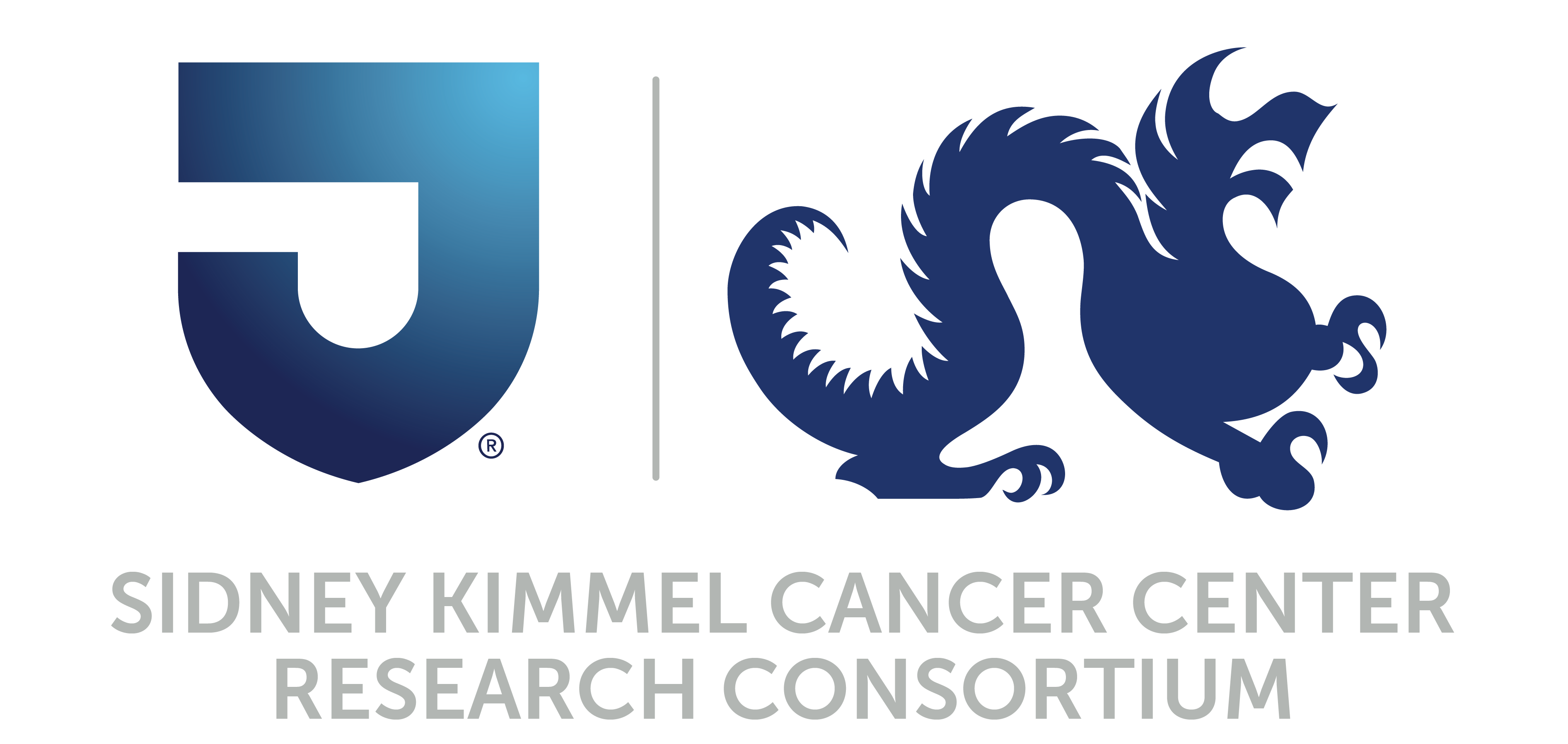
Researchers at Sidney Kimmel Cancer Center at Thomas Jefferson University Promise New Directions for Targeting Prostate Cancer

A team of Sidney Kimmel Cancer Center (SKCC) investigators from Thomas Jefferson University and Drexel University has recently published a new study in the journal Cancer Research that sheds light on a key mechanism of prostate cancer progression.
A team of Sidney Kimmel Cancer Center (SKCC) investigators from Thomas Jefferson University and Drexel University has recently published a new study in the journal Cancer Research that sheds light on a key mechanism of prostate cancer progression. The research was performed as a collaborative effort involving two SKCC investigators, Dr. Felix J. Kim of the Department of Pharmacology & Physiology at Drexel University and lead author of the study, and Dr. Karen E. Knudsen, Director of SKCC and Chair of Cancer Biology at Thomas Jefferson University, together with a third investigator, Dr. Joseph M. Salvino of the Wistar Institute. Drs. Kim and Knudsen are members of the SKCC Program of Excellence in Prostate Cancer, one of only eight such prestigious NCI-designated prostate cancer research and treatment programs.
The new study addresses a fundamental issue in prostate cancer research, namely that although most prostate cancer can initially be treated by androgen depletion or direct antagonism of androgen receptor, compensatory mechanisms eventually cause the cancer to become resistant to this therapy. In a very promising example of collaborative basic and translational research at SKCC, the researchers have now found that small-molecule inhibition of the Sigma1 scaffolding protein blocks nuclear translocation and activity of the androgen receptor, leading to its degradation and thereby suppressing tumor growth. As noted by Dr. Kim, “This work establishes a novel conceptual framework for investigating a protein that was identified over two decades ago, but whose physiological roles in cancer have remained unclear. The relevance of this discovery to cancer pharmacology is that certain small molecule compounds can be used to modulate Sigma1 to allosterically inhibit aberrant androgen receptor signaling.”
These significant new findings linking Sigma1 to the mechanism of androgen receptor signaling raise the possibility of targeting Sigma1 as a new strategy for treating prostate cancer. As Dr. Kim explains, “We have identified a novel drug target and mechanism to treat prostate cancers, including advanced prostate cancers that are resistant to current standard of care agents. This project creates an opportunity to develop a new class of drugs to treat prostate cancer.” Indeed, Dr. Kim has co-founded a biotechnology start-up company, Context Therapeutics, which serves as the drug discovery and development arm for this research program. “This project is a cornerstone for a mechanism-focused cancer pharmacology research program in which we will precisely define how the Sigma1 system works in tumors in order to effectively exploit it as a drug target to treat a number of cancers. Currently, our goal is to identify a drug development candidate for rapid translation of this strategy to clinical trials for prostate cancer.”, adds Dr. Kim.
For further details, see: Thomas JD, Longen CG, Oyer HM, Chen N, Maher CM, Salvino JM, Kania B, Anderson KN, Ostrander WF, Knudsen KE, Kim FJ. Sigma1 Targeting to Suppress Aberrant Androgen Receptor Signaling in Prostate Cancer. Cancer Research [9.329] February 24, 2017, PMID: 28235766.




































